By Ellen Waterman and Jesse Stewart
We were thinking of Canada’s first summer long weekend when we came up with this playlist of significant Canadian songs.
Any list of socially important songs will be incomplete because of the subjective nature of musical experience. All songs are significant to someone, otherwise they wouldn’t exist. But some Canadian songs attain broader social significance by taking on special meanings and resonances — about culture, identity and politics.
We put out a call to faculty and graduate students at Carleton University’s music program, where we teach, to come up with a playlist of songs that spans different time periods and musical genres. The range of the responses reflects our diverse musical interests and social commitments. Although it is highly selective, this short list traces shifting concerns in Canadian society from the 1960s to today.
Music is fun, joyful and entertaining. When you’re listening to music this long weekend, why not turn your ear to its social messages. Canadian songs have a lot of important things to say.
‘The Hockey Song’ (1972)
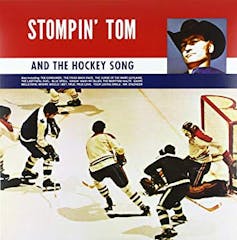
“The Hockey Song” on Stompin’ Tom and the Hockey Song (Boot Records, 1972) has been associated with Canada’s national sport almost since its composition. Stompin’ Tom Connor’s three-verse sports anthem is even structured like the three-period format of the game. The song became so strongly tied to Canadian identity and hockey fandom that it became the theme song for CTV’s sports drama Power Play (1998-2000). “The Hockey Song’s” enduring popularity and iconicity led to its induction in 2018 into the Canadian Songwriters Hall of Fame.
– James Deaville, musicologist
‘New York City’ (1976)
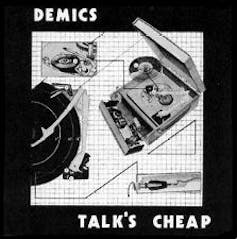
In 1976, Toronto was in the throes of a vibrant punk moment parallel to scenes in New York City and London. Toronto was distinct for its particularly intense involvement with the art world, queer-friendly sensibility and minimal courtship from record labels. “New York City” on Talk’s Cheap (Ready, 1979) touches on the pain of alienation from mainstream society, contrasted with the grass-is-always-greener thought that New York City is the “place for me.” There’s something typically Canadian about this feeling that the action is forever going on elsewhere. In 1996, Chart magazine nominated “New York City” as the greatest Canadian song of all time.
– Jakub Marshall, graduate student researcher
‘High School Confidential’ (1980)
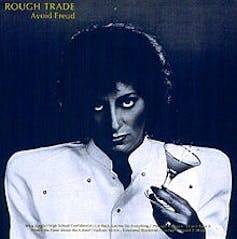
Rough Trade’s “High School Confidential” on Avoid Freud (True North/MCA, 1980) was one of the earliest hit singles with an explicitly LGBTQ perspective. It was also one of the singles that helped establish Canadian artists as leaders in 1980s new wave. The art direction of the associated LP was a high point in the band’s relationship with artist collective General Idea, drawing attention to the close symbiosis during that era between visual arts communities and punk/new wave communities.
– William Echard, musicologist
‘Ils s’aiment’ (1983)
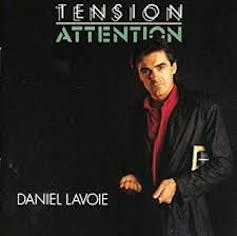
In 1983, Franco-Manitoban songwriter Daniel Lavoie saw a disturbing television image of a teenaged couple walking hand in hand among the rubble of war-torn Beirut after the invasion of Lebanon. The 1982 Lebanon War tore apart the lives of hundreds of thousands of youth who were left poor, hungry and morally bereft in the wake of destruction. This haunting image inspired Lavoie and Daniel DeShaime’s song “Ils s’aiment” translated as “They Love One Another” from Tension Attention (Kébec-Disc 1983), about the ways in which young people struggle to maintain hope in the face of the tragedy of war.
– James Wright, musicologist and composer
‘Northern Touch’ (1998)
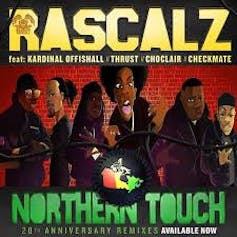
The 1998 rap anthem “Northern Touch” by Rascalz and collaborators Thrust, Checkmate, Choclair and Kardinal Offishall is one of the most important songs in the canon of Canadian hip hop. The award-winning single established a sound and identity that distinguished Canada as the North coast of the hip hop industry. More than 20 years after its initial release, the song still holds significant social importance. Kardinal Offishall released a remix of the track as the Sportsnet theme for Toronto Raptors’ 2018 NBA Playoff run (it was subsequently released on Sony) connecting with the franchise’s “We the North” mantra.
— Ty Hall, graduate student researcher
‘Soobax’ (2005)
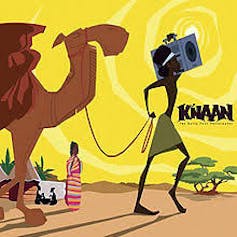
“Soobax,” by K’naan on The Dusty Foot Philosopher (BMG Music, 2005) is a defiant talk-back to the gunmen of Somalia who have inflicted untold suffering on their own people during the country’s long civil war. K’naan, a Somali-Canadian who survived conflicts in Somalia and arrived in Canada as a refugee, gives voice to the thousands forced to flee their homes. Sung in both Somali and English, “Soobax” draws attention away from both the official discourses of multiculturalism and the insular themes of hip hop to highlight the more problematic status — and the resilience — of refugees living in difficult conditions in neighbourhoods as far flung as Nairobi and Toronto.
— Paul Théberge, media and cultural theorist
‘Carry it On’ (2015)
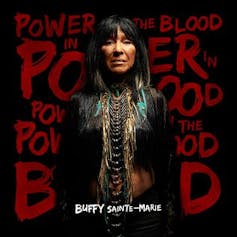
Having written and recorded such influential protest songs as “Now That the Buffalo’s Gone” and “Universal Soldier” in the 1960s on It’s My Way! (Vanguard, 1962), Buffy Sainte-Marie has continued to create hugely compelling songs for more than 50 years, including many that epitomize the idea of socially significant song. “Carry it On” from her 2015 Polaris-prize winning album Power in the Blood (True North 2015), is an incisive environmental call-to-action:
“Lift your heart to your own home planet …What do you see? What is your attitude? Are you here to improve or damn it?”
— Jesse Stewart, composer and musicologist
‘Retribution’ (2016)
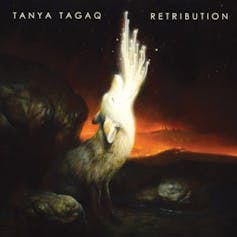
Tanya Tagaq’s title track on her 2016 album Retribution (Six Shooter) is another potent example of music’s power to promote environmental activism, an important trend in popular music. It’s the musical equivalent of the UN Intergovernmental Panel on Climate Change: a raging, howling warning of the dire consequences we are already experiencing from wanton resource extraction and human greed. Canada’s Inuit experimental pop diva pulls no punches in this extended length track with a powerful shamanic video featuring mask dancer Laakkuluk Williamson Bathory.
— Ellen Waterman, ethnomusicologist
Songs for your Canadian summer long playlist:
This article is republished from The Conversation under a Creative Commons license. Carleton University is a member of this unique digital journalism platform that launched in June 2017 to boost visibility of Canada’s academic faculty and researchers. Interested in writing a piece? Please contact Steven Reid or sign up to become an author.
All photos provided by The Conversation from various sources.
![]()
Tuesday, May 14, 2019 in The Conversation
Share: Twitter, Facebook



